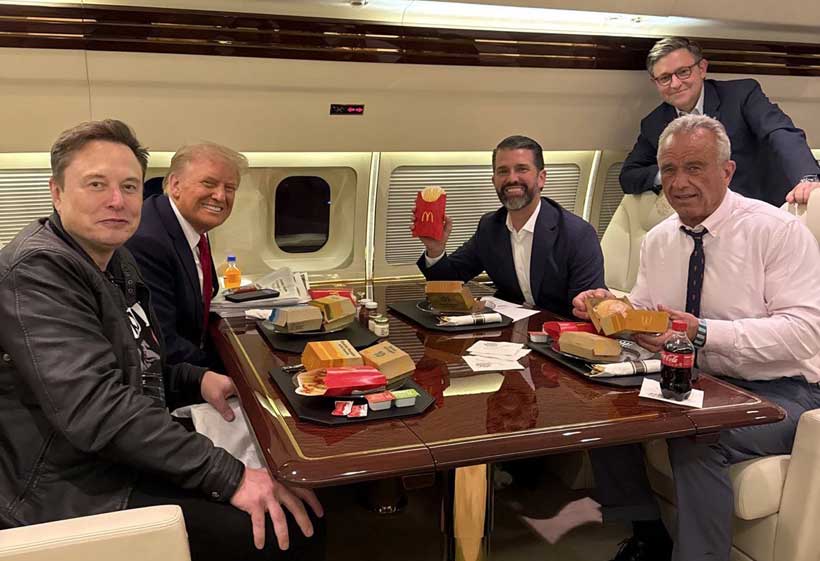A president who built his reputation as a real estate mogul and TV personality, not through political office or military service. A cultural influencer and entrepreneur best known as the CEO of Tesla and SpaceX, he also leads companies like Neuralink and The Boring Company, both embroiled in a feud. An intriguing moment in politics, one that could steer the direction of public discourse and holds potential for both factionalism and authoritarian tendencies. Two political outsiders beefing in the political space. Perhaps, if both were real politicians, the first thing to say would be that in politics there are no permanent friends and no permanent enemies, only permanent interests. Since both are businessmen, perhaps the philosophy of supply and demand should take the lead.
One key area of tension is their vision for power and influence. Trump has traditionally sought loyalty and absolute control over his political base. Musk, on the other hand, champions a decentralized, free speech-centric internet and promotes what he calls “rational centrism.” Their feud exposes a broader struggle over who gets to define the conservative movement in the digital age. Is it career politicians like Trump or tech disruptors like Musk?
As the feud between Elon Musk and Donald Trump escalates, it signals a seismic shift in where power and influence now reside in America. Musk represents the rise of the tech oligarch—billionaires who command not only wealth but also control over critical digital infrastructure and artificial intelligence. In contrast, Trump embodies the traditional fusion of business interests and political power. This public clash reflects more than a personal rivalry; it marks a defining moment in history when unelected figures with vast digital reach are rivaling, and in some cases eclipsing, the authority of elected officials. At stake is the very foundation of American democracy.
The cultural impact is equally significant. In today’s fragmented media landscape, Musk owns and controls X (formerly Twitter), one of the most influential social media platforms. Trump, meanwhile, promotes his views through Truth Social, his own media venture. Their battles play out in real time across these platforms, often fueling misinformation, deepening tribal divides, and eroding a shared sense of truth. This dynamic contributes to a growing destabilization of democratic norms. The rise of personality-driven politics is not confined to the United States; it is a global trend, reshaping leadership and public discourse worldwide. As Musk and Trump dominate headlines, millions are drawn into a media spectacle that distracts from urgent challenges like climate change, economic inequality, healthcare reform, and global instability. In this new era of digital power, the question remains: who truly holds the reins of influence, and at what cost to democratic society?
Elon Musk’s companies play a pivotal role in the U.S. economy, particularly in the automotive, aerospace, and infrastructure sectors. Should President Donald Trump choose to launch a political or rhetorical campaign against Musk, it could prompt Republican policymakers to reassess their support for clean energy subsidies, government contracts, or regulatory leniency. At the same time, Musk’s significant influence over financial markets—including cryptocurrencies and tech stocks—means that any sustained public clash with Trump could spark market volatility, especially if investors anticipate political retaliation or regulatory changes.
Should this feud be prolonged, the two figures could have far-reaching implications for Silicon Valley and the broader culture of innovation. Elon Musk is widely regarded as a symbol of entrepreneurial ambition and visionary risk-taking. Should former President Trump cast him as a political adversary, it could politicize certain elements of the tech industry, potentially undermining bipartisan support for innovation-driven initiatives. On the other hand, such a clash might encourage other tech leaders to adopt more overt political positions, either aligning with Musk’s views or deliberately distancing themselves from his influence, thereby challenging the traditionally apolitical posture of the tech sector.
The cultural implications of such a feud could be profound. Elon Musk resonates with younger, tech-savvy audiences through memes, livestreams, and direct engagement on social media platforms. In contrast, Donald Trump appeals to an older demographic that emphasizes traditional values and nationalist rhetoric. A prolonged conflict between the two figures could highlight and deepen the generational and ideological divides in American society. As business and politics become increasingly performative and adversarial, the space for collaboration, empathy, and thoughtful public discourse may continue to shrink.
Ultimately, in a nation already grappling with deep polarization, media fragmentation, and widespread institutional mistrust, a public clash between Elon Musk and Donald Trump could intensify existing divisions. While such a feud may appear, at first glance, to be mere spectacle, its ripple effects could extend far beyond headlines, impacting politics, economics, culture, and technology. As highly influential figures, both Musk and Trump bear a responsibility that transcends their personal brands. Their actions and their conflicts resonate throughout American society, making the consequences of their feud not just personal, but profoundly national.
